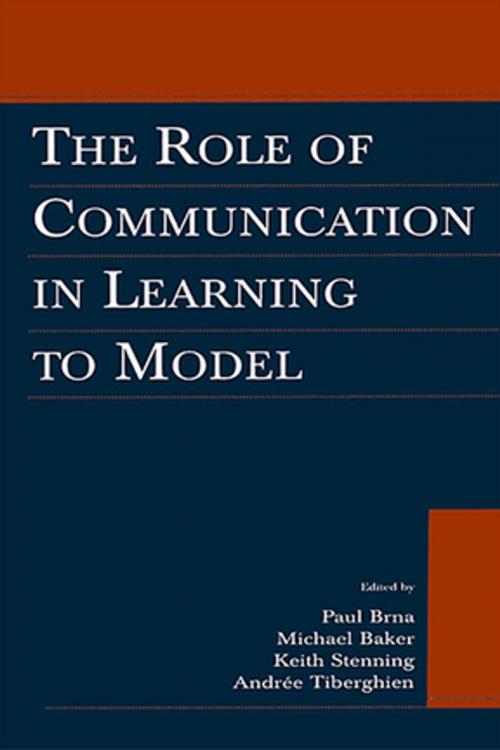The Role of Communication in Learning To Model
Nonfiction, Health & Well Being, Psychology, Cognitive Psychology| Author: | ISBN: | 9781135640026 | |
| Publisher: | Taylor and Francis | Publication: | May 12, 2014 |
| Imprint: | Psychology Press | Language: | English |
| Author: | |
| ISBN: | 9781135640026 |
| Publisher: | Taylor and Francis |
| Publication: | May 12, 2014 |
| Imprint: | Psychology Press |
| Language: | English |
In this book, a number of experts from various disciplines take a look at three different strands in learning to model. They examine the activity of modeling from disparate theoretical standpoints, taking into account the individual situation of the individuals involved. The chapters seek to bridge the modeling of communication and the modeling of particular scientific domains. In so doing, they seek to throw light on the educational communication that goes on in conceptual learning.
Taken together, the chapters brought together in this volume illustrate the diversity and vivacity of research on a relatively neglected, yet crucially important aspect of education across disciplines: learning to model. A common thread across the research presented is the view that communication and interaction, as fundamental to most educational practices and as a repository of conceptual understanding and a learning mechanism in itself, is intimately linked to elaborating meaningful, coherent, and valid representations of the world.
The editors hope this volume will contribute to both the fundamental research in its field and ultimately provide results that can be of practical value in designing new situations for teaching and learning modeling, particularly those involving computers.
In this book, a number of experts from various disciplines take a look at three different strands in learning to model. They examine the activity of modeling from disparate theoretical standpoints, taking into account the individual situation of the individuals involved. The chapters seek to bridge the modeling of communication and the modeling of particular scientific domains. In so doing, they seek to throw light on the educational communication that goes on in conceptual learning.
Taken together, the chapters brought together in this volume illustrate the diversity and vivacity of research on a relatively neglected, yet crucially important aspect of education across disciplines: learning to model. A common thread across the research presented is the view that communication and interaction, as fundamental to most educational practices and as a repository of conceptual understanding and a learning mechanism in itself, is intimately linked to elaborating meaningful, coherent, and valid representations of the world.
The editors hope this volume will contribute to both the fundamental research in its field and ultimately provide results that can be of practical value in designing new situations for teaching and learning modeling, particularly those involving computers.















